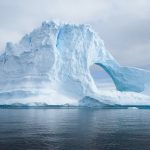 July 19, 2021 1:35 pm
Published by Jenny Rislund
July 19, 2021 1:35 pm
Published by Jenny Rislund
Anthropogenic climate change has been most clearly observed in the world's midlatitude regions. The limited number of observations for the Southern Hemisphere has prevented the development of a long-term understanding of these changes. This project aims to fill this critical gap by examining daily changes in Southern Hemisphere atmospheric circulation back to 1830. To do this, the project will build on recently recovered daily instrumental weather observations for southern Australia.
 March 3, 2021 3:45 pm
Published by Climate Extremes
March 3, 2021 3:45 pm
Published by Climate Extremes
The largest rivers on Earth are not on the ground, but in the sky. Our new study, published in Environmental Research Letters, showed that nine out of ten of the most expensive floods in New Zealand (2007-2017) occurred during an Atmospheric River event, and seven to all ten of the top ten most extreme rainfall events at eleven different locations occurred during Atmospheric Rivers.
 November 2, 2020 2:28 pm
Published by Climate Extremes
November 2, 2020 2:28 pm
Published by Climate Extremes
New study shows November-to-March precipitation (when rainy season peaks over most of the Southern Hemisphere land mass) was significantly reduced both in the Southern Hemisphere tropics and subtropics due to a weakening of the subtropical convergence zones during the mid-Pliocene Warm Period.
 August 11, 2020 10:01 am
Published by Climate Extremes
August 11, 2020 10:01 am
Published by Climate Extremes
Comparing past and future changes in Southern Hemisphere monsoons has revealed how they will alter with climate change under a business-as-usual scenario.
 February 12, 2020 1:38 pm
Published by Climate Extremes
February 12, 2020 1:38 pm
Published by Climate Extremes
Research by CLEX scientists and colleagues re-examines some of the basic assumptions and interpretations in the theory. In particular, they show the SAM cannot be interpreted as a descriptor of mid-latitude variability and it has little imprint on the weather of the storm track.
 May 23, 2019 12:47 pm
Published by Climate Extremes
May 23, 2019 12:47 pm
Published by Climate Extremes
CLEX researchers find strong correlation between ozone hole size and Australian summer temperatures. While there is no causal link between the two, the changes are driven by the same source - ocean temperatures.
 May 13, 2019 2:57 pm
Published by Climate Extremes
May 13, 2019 2:57 pm
Published by Climate Extremes
New research confirms the long-term cooling over Antarctica during the last millennium and the delayed onset of anthropogenic warming are found in simulations that assimilate palaeoclimate data. This is not evident in simulations without data assimilation.
 March 18, 2019 3:12 pm
Published by Climate Extremes
March 18, 2019 3:12 pm
Published by Climate Extremes
Two workshops, the Sea Ice Modelling Workshop and Centre of Excellence for Climate Extremes “Southern Annular Mode (SAM) Cluster” workshop were held together at the Institute for Marine and Antarctic Studies in Hobart from February 19-21.
March 11, 2019 4:46 pm
Published by Climate Extremes
Gilbert Brunet (Bureau of Meteorology)








